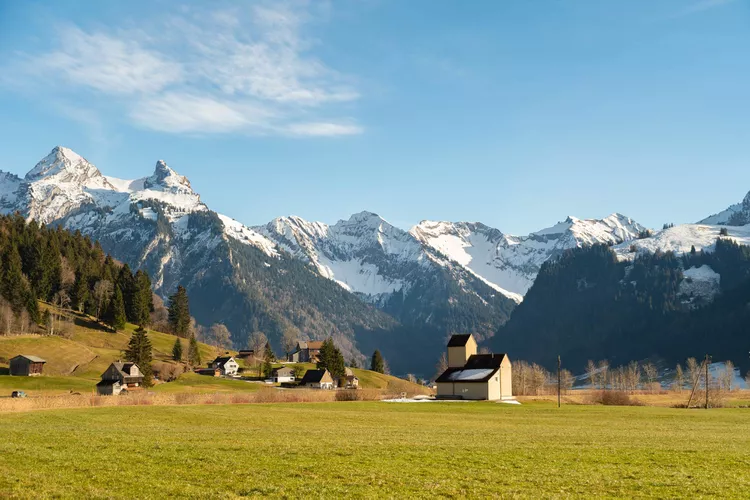Individual happiness is subjective; however, certain factors contribute to a happy society universally, according to the UN Sustainable Development Solutions Network. For over a decade, this esteemed organization has ranked more than 150 countries based on citizens’ self-assessments of their quality of life, reflecting aspects such as social support, income, health, freedom, generosity, and corruption levels.
While the consistent leaders are the Nordic countries of Finland, Denmark, and Iceland, the report highlights that global life satisfaction remains “just as high as in the pre-pandemic years,” despite ongoing world crises including the war in Ukraine.
Professor Richard Layard, co-director of the Wellbeing Programme at the London School of Economics, emphasizes, “The overall goal is a happier society. We achieve this by making each other happy—not just ourselves. This goal inspires us as individuals and includes the happiness of future generations along with our mental health.”
Finland
:max_bytes(150000):strip_icc():format(webp)/TAL-tampere-finland-HAPPIESTCOUNTRY0323-102e73ceebe845e7859f223cfb0664d6.jpg)
This Nordic nation has been named the happiest in the world for an unprecedented sixth time. Although its score of 7.804 is slightly below last year’s 7.821, Finland continues to outperform other nations significantly. Notably, Finland has initiated a “Masterclass of Happiness” to assist individuals in discovering their ‘inner Finn’ and mastering the Finnish mindset. This program involves professional coaches aiding participants in forging a connection with nature amidst the peaceful landscapes of Kuru Resort, known for its breathtaking views.
Denmark
:max_bytes(150000):strip_icc():format(webp)/TAL-copenhagen-denmark-HAPPIESTCOUNTRY0323-61b8d6b020ee4459955a6af1c7a86bed.jpg)
With a total score of 7.586, Denmark secures its position as the second happiest country. The ‘hygge’ lifestyle illustrates that high taxes do not equate to national unhappiness. Despite Danish citizens facing the highest personal income tax in Europe (nearly 56 percent), they benefit from an extensive social welfare system encompassing free education and health care, which contributes significantly to their high levels of contentment.
Iceland
:max_bytes(150000):strip_icc():format(webp)/TAL-akureyri-iceland-HAPPIESTCOUNTRY0323-2530f9c09e3f49f0972e9765b3d4a430.jpg)
Iceland, celebrated as one of the happiest countries globally, also ranks as the safest. It leads the World Economic Forum’s 2022 Global Gender Gap Report, having effectively closed over 90 percent of its gender gap. The happiness of Icelandic residents can be attributed to high incomes, economic stability, minimal corruption, a spirit of generosity, free education, and a cohesive community. Moreover, residing among some of the world’s most awe-inspiring natural beauty enhances their overall sense of happiness.
Israel
:max_bytes(150000):strip_icc():format(webp)/TAL-tel-aviv-israel-HAPPIESTCOUNTRY0323-6d46272ec30c4bdeba23d726efd5e3d1.jpg)
One of the most notable shifts in this year’s rankings is Israel’s rise, jumping five spots to fourth place—its highest ranking since the report’s inception in 2012. This improvement is attributed to the country’s swift recovery post-COVID, with economic growth of 6.5 percent and a 4.4 percent increase in GDP per capita. Additionally, strong social connections and high life expectancy, as indicated by the Organisation for Economic Co-operation and Development (OECD), underscore the happiness of Israeli residents.
Netherlands
:max_bytes(150000):strip_icc():format(webp)/TAL-amsterdam-netherlands-HAPPIESTCOUNTRY0323-749e509e8f3e4bf3938df0bd066a3954.jpg)
The Netherlands ranks fifth with a score of 7.403, remaining consistent with last year’s performance. Apart from its picturesque tulip fields, the nation recently garnered accolades for its resilience and robust economic recovery, particularly highlighted in the International Monetary Fund’s latest report. Furthermore, accessible higher education, a strong job market, and active civic engagement contribute positively to the happiness experienced in Dutch society.
Sweden
:max_bytes(150000):strip_icc():format(webp)/TAL-stockholm-sweden-summer-HAPPIESTCOUNTRY0323-5370ba1e90324e668d274d2059799bb9.jpg)
Sweden’s ranking improved to sixth this year, demonstrating slight resilience despite facing higher COVID-19 mortality compared to other Nordic countries. The country enjoys low air and environmental pollution levels, second only to Finland, which correlates with enhanced life expectancy, as highlighted by OECD data. Additionally, Sweden’s high employment rates coupled with gender equality—where more than 80 percent of women are employed—significantly contribute to higher life satisfaction levels.
Norway
:max_bytes(150000):strip_icc():format(webp)/TAL-tromso-norway-HAPPIESTCOUNTRY0323-f4645e8d688242d6aebbb9344831b84e.jpg)
Norwegians widely consider themselves a happy populace. With access to tuition-free education, high-income possibilities, minimal corruption, and a robust social safety net, Norway has consistently appeared within the top ten happiest countries, even reaching first place in 2017. The country’s extraordinary natural attractions—including fjords, mountains, and picturesque forests—combined with frequent sightings of the northern lights, provide ample opportunities for individuals to unwind and rejuvenate in the great outdoors.
Switzerland
Robert Buschel/Getty Images
Despite a decline of four positions since the previous year, Switzerland remains home to some of the happiest and healthiest individuals globally. This is attributed to low crime rates, a high GDP per capita, and scenic mountain landscapes ideal for year-round recreation. The World Happiness Report suggests that positive life satisfaction among Swiss people is largely linked to “prosociality,” encouraging communal activities such as volunteering and charitable contributions.
Luxembourg
:max_bytes(150000):strip_icc():format(webp)/TAL-luxembourg-HAPPIESTCOUNTRY0323-12eae78797c14c51afadec55e7fb88b5.jpg)
Having entered the top ten happiest countries for the first time last year at sixth place, Luxembourg has since dropped to ninth place in 2023, achieving a score of 7.228. While it ranks among Europe’s smallest and least populous nations, Luxembourg boasts one of the highest GDP per capita worldwide. Factors contributing to local happiness include safety, high public trust, and a richly diverse society, with around half of its residents holding foreign nationality.
New Zealand
:max_bytes(150000):strip_icc():format(webp)/TAL-christchurch-new-zealand-HAPPIESTCOUNTRY0323-b27f9aaf45824bc5bc44e7e297bff9c6.jpg)
Consistently occupying the tenth position on the list of the happiest countries, New Zealand has witnessed a steady influx of visitors since reopening post-COVID in April 2022. This resurgence has helped it recover economically, in some sectors even exceeding pre-pandemic metrics.
In addition to a robust GDP per capita, New Zealand offers its residents remarkable access to stunning beaches, lakes, and vineyards. Furthermore, the country outshines other OECD nations across various well-being indicators encompassing education, health, and civic involvement.




